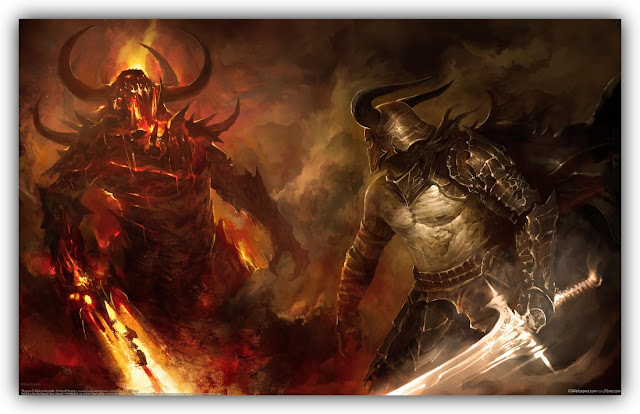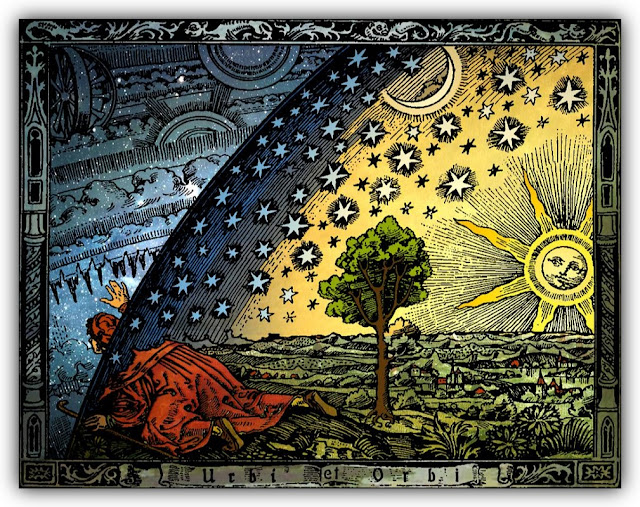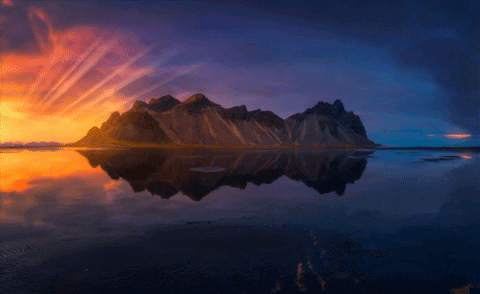Theodicy
Duality
A battle is being waged over control of our universe. Factions of the gods fight each other over the fate of this universe and every other universe within the whole, living multiverse. The gods battle themselves through mortals in a kind of proxy war. This war is called Médhighordhosjo Dsa [/ˈmɛdhɪˌghɔrdhɔsjɔ ˈtsa/] 🔊 (‘the midrealm war’). The spiritual gods and the celestial gods join together in their struggle to promote the creation, while the demons fight instead to limit the number of universes that participate in the creation. This last group does so either by preventing the emergence of the gods within universes, or by conquering those universes wherein the gods have already emerged. The demons work to destroy advanced life within universes and to prevent any emergence of the gods, because only those universes that contain the gods can potentially participate in the act of creation. Physical universes with no gods or consciousness are relegated to Wástoudn, the vast and barren wasteland of the cosmos. The demons may properly be regarded as evil, although they are motivated in their destructive actions ultimately by compassion for all of the souls who will inevitably suffer within conscious universes. The dualistic battle between good and evil, between the forces of life and those of death, may be seen here as a struggle to settle Hamlet’s straightforward existential question: ‘To be, or not to be?’
It is said that many a battle has been won or lost at the time of its planning. So it is with this cosmic, Manichaean battle. The battlefield is the entire omniverse, but the mode of battle is in the very act of designing that which will happen during the struggles within it, each side working to influence that design in such a way as might be expected to either promote or discourage the birth and evolution of the gods within individual universes as the creation unfolds. Miraculous interventions into reality by the gods are integrated into this initial design. These miracles are extremely rare, and so they may on the surface seem also extremely unlikely. Nevertheless, they are always logically necessary for the evolution of this universe and its life into Déiwos. Thus, such events are not really miraculous at all but are in truth inevitable consequences of the fact that we live within a universe imbued with consciousness and destined to bring forth gods. (Within this particular branch of the multiverse, however, whether our own planet will bring forth gods is far from clear.) Although strife seems to plague the factions of gods (and of mortals), everything is nevertheless part of a greater wisdom and wholeness that is the dream of Óljamma. Among Androgynean Soqjós, it is believed that an intersex savior, named Wirocénos, will one day come to save the world and reconcile its opposites, including those of ‘good’ and ‘evil’.
Extraordinary levels of evil, of agony and misery inflicted upon sentient beings in the universe, is the byproduct of demons working to prevent the emergence of the gods within it, particularly during catastrophic disruptions such as those currently being visited by civilization upon Earth’s biosphere. However, some measure of pain and anguish may have been inevitable even were the universe created by gods united in virtue and purpose. This is presumably because the gods cannot fashion an isolated, yet vital and perfectly blissful, universe. Perhaps even the gods cannot make a living multiverse that is incongruous or self-contradictory. Omnipotence might not extent to include the power to construct that which is alive and yet logically impossible. One important implication of our residing within a multiverse is that any event that can ever possibly happen—good, bad, or indifferent, and no matter how unlikely—is in fact really happening somewhere within the cosmos.
‘The Strength of Weakness’
[This is an excerpt from Dr. Schmookler’s book Out of Weakness: Healing the Wounds That Drive Us to War, (Bantam, 1988, pp. 84–85)]
“It seems as though something much greater than us is trying to come into being, trying to grow toward perfection. Something greater than us, but also something of which we are part. Perhaps this ‘something’ is God.
“What profound implications such a view of God brings with it! If we are part of it, then our sufferings are also God’s. The carnage of the battlefield, the scarred earth where the tropical forests have been swept away—these are wounds also on the vulnerable body of God. And our ‘sins’ are also, in this view, the shortcomings of God. But the evolutionary view changes our perspective on ‘evil’. Because the work of evolution is unfinished, the perfect order toward which It/we are growing remains unaccomplished, and through the gaps in the evolutionary fabric evils may befall us, may issue from us. The question no longer is ‘How could God allow an Auschwitz?’—a question that has made many a survivor abandon all belief in God, or to reject a God deemed unworthy of worship. Perhaps a part of God, too, died at Auschwitz—a God that, like us, is vulnerable and, like us, not yet able to safeguard all that is sacred.
“Evil and suffering, in this view, are to be seen not as part of an economy of sin and punitive wrath but as signs of the unfinished process of cosmic evolution. Truly, it is our sin that brings us much of our suffering, but it comes not as retribution but as natural consequence, like tumbling off the path onto the sharp rocks. And it is God’s body that bleeds as well. And truly, our working to create a better order—the order of shalom—is doing ‘God’s work’. But ‘God’s work’ not in the sense of its having been assigned from a taskmaster above, but rather in the sense that our labors are God’s way of working.
“Out from the power-dominated imagery of ruler and ruled, of whip-holder and slave, of the Almighty and the weak, we are led by this view into a different relationship with our God. This God is still our Creator, but in a different sense because the boundaries change when we are part of God. The boundaries of inclusion, in contrast with the boundaries of division, may create a more open path to serve God. To serve not dutifully in the fulfillment of commandments handed from above, but lovingly with an understanding that God needs us. The Something of which we are part can work only through the Creation, and the failures and sufferings of the creatures are simultaneously those of the Creator.
“Not the apotheosis of vulnerable flesh into almighty gods; rather, the recognition—in the flesh of our bodies and in the living web of our delicate planet—of the vulnerability of the divine.”
This brilliant book can be purchased online, through Barnes & Noble or Amazon, or through your local bookseller.









